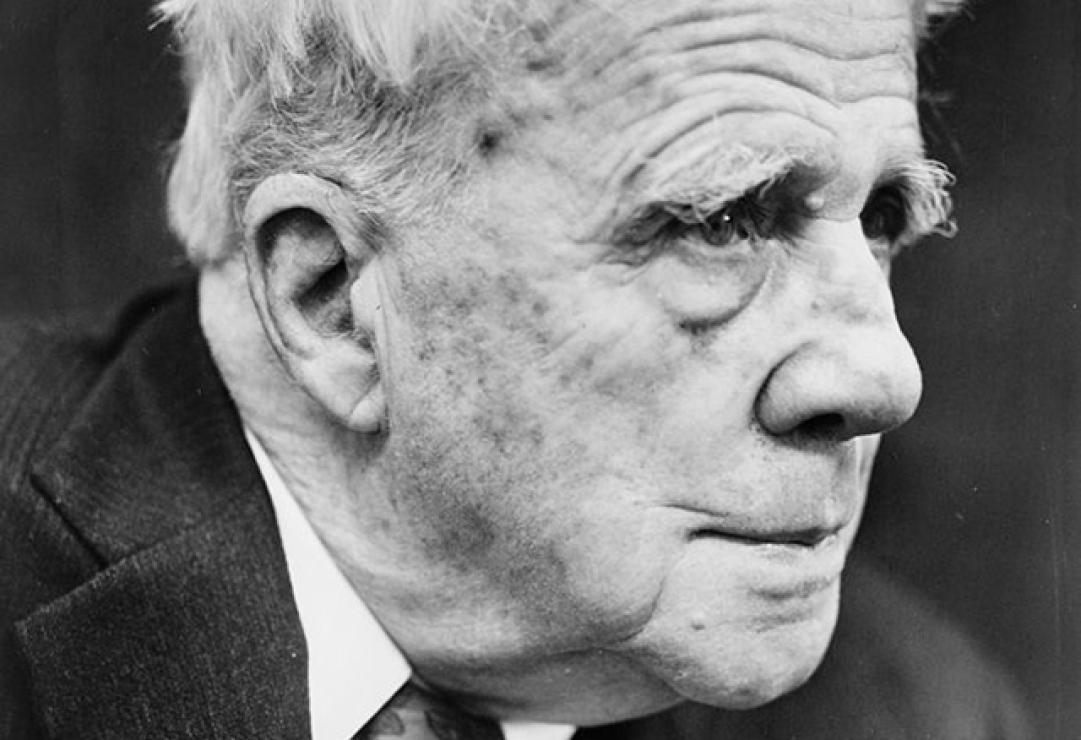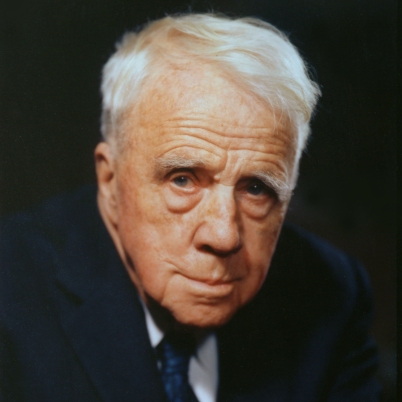The poem “The Death of The Hired Man” appears in North of Boston, a collection of Robert Frost’s poems, which was first published in the year 1914. The Death of The Hired Man poem has a pastoral setting to it, with the principal characters being a farmer, Warren, his wife, Mary, and an itinerant farmhand named Silas. The Death of The Hired Man is a dialogue between the couple, and they talk about Silas. The central plot revolves around the unexpected return of Silas, who has betrayed the trust, loyalty, and patience of Warren on more than one occasion. Here, we have given The Death of the Hired Man: Analysis, Theme, and Literary Devices.
The Death of The Hired Man: Analysis
The Death of The Hired Man poem is primarily a dialogue between the husband and the wife on the issue of the returning farmhand. But we see some descriptive and narrative portions as well. Frost has mastered the art of making the verse sound like a conversation between individuals. There is a possibility that Frost was trying to portray the verbal characteristics of the people living around him. Throughout the dialogue between the couple, there is the constant mention of the “hired man,” i.e., Silas, who remains the character around whom the whole conversation is built, and whose arrival and demise form central events in the poem. Silas happens to be a disloyal farm servant who has repeatedly left the service of Warren during the most crucial moments over the past many years. Naturally, Warren’s attitude towards the farmworker is nothing close to being mild and receptive, but on the contrary, cold and untrustworthy. Silas has thus taken advantage of the forgiving nature of his employers on many occasions, but consequently, has been taken back into service. We get to know the innate characteristics of Warren and Mary as the poem continues to reveal to us the background to the current situation.
Warren wants to prevent someone from taking advantage of their goodness. We are sure about the fact that Warren is a good man since he has already given Silas many chances to prove his faithfulness. But on each occasion, it has been Silas who has broken faith. On the contrary, Mary is charitable unconditionally. The moment Mary catches sight of her husband, she tells him to “be kind,” especially since she has the feeling that Silas’s end is near.
Silas is absent from the stage. He is the topic of discussion without having to appear on the conversational plane. We get to know about this opportunist, vagabond-like helper on the farm through the information provided to us by the couple. It is revealed that Silas suffers from a terrible bout of inferiority complex. There is the mention of an event that took place in the previous summer at Warren’s farm when a boy named Harold was working alongside Silas. It is recollected how the self-respect of Silas was repeatedly damaged by the words of a mere college-going young boy. He is uneducated, friendless, and is heavily bothered about his pride and self-esteem, and in order to protect it, he refrains from approaching his well-to-do brother, who is rich and well-known in the place where they all live. Also, he does not want to make it obvious that he is seeking charity from the kind couple. So, Silas declares his intent to help Warren by ‘ditching the upper meadow and clearing the upper pasture.’ By camouflaging his real intent, Silas hopes to safeguard the remnants of his self-worth. Eventually, the wife wins over her not-so-stubborn husband and forces him to consider a place at his farm for Silas.
The Death of The Hired Man: Theme and Symbolism
“The Death of the Hired Man” has more than one thematic undertone. On one level, there is the ever-present conflict between the belief system of Warren and Mary vis-a-vis the hired man, i.e., Silas. The couple faces a moral conundrum while dealing with the situation presented by the return of the disloyal laborer. How should they behave with the man who repeatedly deserts the person he is supposed to be loyal to? What can be the approach to deal with such a person? Warren, for one, feels no legal obligation to take Silas back into his fold. He had even warned Silas the last time he worked for him, telling him that it would be the last time he would betray his trust and that there would not be another chance for redemption if he chose to leave the farm again, an action we know Silas committed yet again. This leaves Warren with little choice but to act sternly in order to uphold his decision and protect the honor of his declaration. So it is fairly simple for Warren to act thoroughly unconcerned about the man at the outset of the poem.
Since Silas has been disloyal to them many times, why should they be the ones helping him when he has fallen on dire straits? They are not related to him like his well-to-do brother. If someone is to help Silas, it has to be someone related to him by blood and certainly not them. These are some of the moral dilemmas at play when both of them speak. In another instance, Warren realizes that Silas has no productive value any further when he gets to know from his wife about the physical condition of his ex-employee. Accepting to let him stay at his house would act as an added burden on his resources without adding any overall value whatsoever. Added to this, Silas’s presence would also create friction between him and his wife Mary since both have highly varying levels of trust and concern for him. Considering all these, it would be pertinent to take up the position of Warren. However, the constant insistence of Mary, who has a completely different approach towards life, makes Warren go soft and be merciful as the poem progresses. Silas is looked upon as a fellow human being with nowhere else to go for refuge except at the house of his occasional master.
Here, we can take cognizance of the fact that there is a constant inner battle raging on between two opposing forces. It is a moral issue that is at stake at this juncture. Whether Warren and Mary should accept Silas back or not? That is the central moral quagmire around which Frost builds up his poem. We can sense the presence of Christian piety in the attitude of Mary, who wants to stick to the holy precepts of mercy and forgiveness. On the other hand, Warren is the silent type, with more inclination towards justice while dealing with situations like the one presented by Silas. For Mary, it is a matter of social obligation to help Silas in his time of greatest need. The ideals of fairness and justice are dearer to Warren, who may be seen to adhere to the ideals associated with the maxim ‘you reap what you sow’ or karma.
The poem presents two diverse interpretations of the term “home.” Although Silas does not get to participate in the conversation, one could imagine him having consciously returned to the place he considers his “home.” Going by kinship obligations, he is supposed to go to his brother’s house to seek help and refuge. But he decides to come to Warren and Mary’s house instead. The poem provides us with two definitions of the term “home.” “‘Home is the place where, when you have to go there, / They have to take you in.’/ ‘I should have called it/ Something you somehow haven’t to deserve.’” Silas’s action of having made his way back to Warren’s farm seems to be based on both these definitions. Despite the fact that Silas does not deserve to be accepted back again, Warren relents at the end in favor of the old and sick man.
The Death of The Hired Man: Literary Devices
The greater part of the poem The Death of the Hired Man has been written in blank verse. It means that the poet has used the Iambic Pentameter form, but without any rhyme. The word ‘Iambic’ has come from the term ‘iamb,’ which denotes a metrical foot consisting of an unstressed syllable followed by a stressed syllable. In antiquity, the iambic rhythm was thought to be the nearest to speech, and it is the commonest type of foot in all English verse because it fits the prevailing natural pattern of English words and phrases. Pentameter means the five-foot line and the basic line in much English verse, especially in blank verse and the heroic couplet.
The basic foot in English pentameters is iambic. In iambic pentameter, every single line has to have ten syllables; however, in this poem, that is not the case. The lines that do not abide by this rule are called ‘variants.’ As this poem contains many dialogues, it is apt on the part of the poet to use the iambic pentameter form mainly because the English language is usually stressed as iambic in nature. Being written in the dialogic form, the stanzas contained within the poem are not ordered at regular intervals. The stanzas are closer to prose paragraphs in function. There are breaks taking place with the onset of each new speaker. During a shift in the speaker midway through a line, the reader finds an indented first line in the following stanza so as to reveal the fact that the opening line also acts as the closing line of the previous stanza. The poet has done this for the maintenance of metrical regularity.
Some online learning platforms provide certifications, while others are designed to simply grow your skills in your personal and professional life. Including Masterclass and Coursera, here are our recommendations for the best online learning platforms you can sign up for today.
The 7 Best Online Learning Platforms of 2022
- Best Overall: Coursera
- Best for Niche Topics: Udemy
- Best for Creative Fields: Skillshare
- Best for Celebrity Lessons: MasterClass
- Best for STEM: EdX
- Best for Career Building: Udacity
- Best for Data Learning: Pluralsight
















